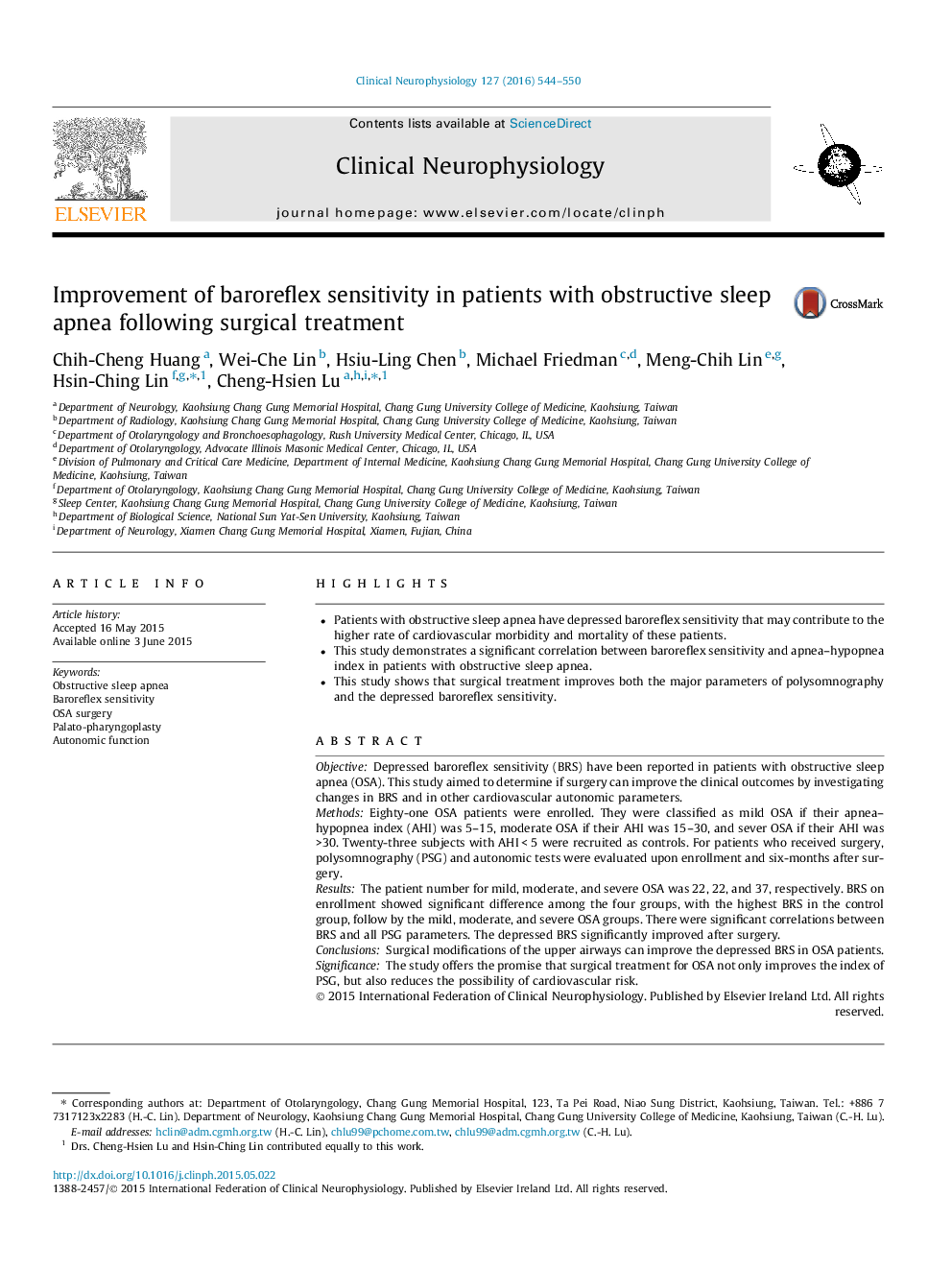| Article ID | Journal | Published Year | Pages | File Type |
|---|---|---|---|---|
| 6007924 | Clinical Neurophysiology | 2016 | 7 Pages |
â¢Patients with obstructive sleep apnea have depressed baroreflex sensitivity that may contribute to the higher rate of cardiovascular morbidity and mortality of these patients.â¢This study demonstrates a significant correlation between baroreflex sensitivity and apnea-hypopnea index in patients with obstructive sleep apnea.â¢This study shows that surgical treatment improves both the major parameters of polysomnography and the depressed baroreflex sensitivity.
ObjectiveDepressed baroreflex sensitivity (BRS) have been reported in patients with obstructive sleep apnea (OSA). This study aimed to determine if surgery can improve the clinical outcomes by investigating changes in BRS and in other cardiovascular autonomic parameters.MethodsEighty-one OSA patients were enrolled. They were classified as mild OSA if their apnea-hypopnea index (AHI) was 5-15, moderate OSA if their AHI was 15-30, and sever OSA if their AHI was >30. Twenty-three subjects with AHIÂ <Â 5 were recruited as controls. For patients who received surgery, polysomnography (PSG) and autonomic tests were evaluated upon enrollment and six-months after surgery.ResultsThe patient number for mild, moderate, and severe OSA was 22, 22, and 37, respectively. BRS on enrollment showed significant difference among the four groups, with the highest BRS in the control group, follow by the mild, moderate, and severe OSA groups. There were significant correlations between BRS and all PSG parameters. The depressed BRS significantly improved after surgery.ConclusionsSurgical modifications of the upper airways can improve the depressed BRS in OSA patients.SignificanceThe study offers the promise that surgical treatment for OSA not only improves the index of PSG, but also reduces the possibility of cardiovascular risk.
